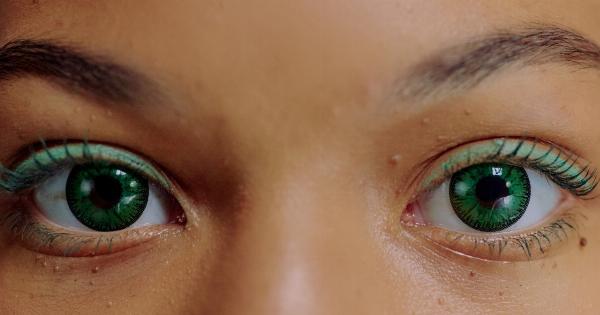Summer is a time when many people enjoy outdoor activities and soak up the sun. But as the temperature rises, so does the risk of eye-related issues, especially for contact lens wearers.
The combination of heat, sweat, and dust can make wearing contacts uncomfortable and increase the chances of eye infections or irritation. In this article, we will discuss some essential tips on how to care for your contacts during the summer heat.
1. Keep Your Hands Clean
Before handling your contact lenses, make sure to wash your hands thoroughly with mild soap and water. This helps remove any dirt, oil, or germs that can transfer to the lenses and cause discomfort or infections.
Dry your hands with a lint-free towel or let them air dry to avoid any lint or fibers getting into your eyes.
2. Use a Suitable Disinfecting Solution
During the summer, it’s essential to use a disinfecting solution specifically designed for contact lenses. This solution helps remove debris, protein build-up, and kills bacteria or viruses that might have accumulated on your lenses.
Follow the instructions provided with the solution and avoid using expired products.
3. Clean and Replace Your Contact Lens Case Frequently
Your contact lens case is a breeding ground for bacteria and fungi, especially when exposed to heat and moisture.
To keep your lenses clean and your eyes safe, clean your storage case daily and replace it every three months or as recommended by your eye care professional. Using a clean case reduces the chances of contamination and infections.
4. Avoid Swimming with Contact Lenses
While swimming may seem like a refreshing activity during the summer, it’s best to avoid wearing contact lenses while in the water.
Pools, oceans, and even hot tubs can harbor harmful microorganisms that can adhere to your lenses and cause eye infections. Switch to prescription goggles if you need vision correction while swimming.
5. Stay Hydrated
Hydration is crucial both for your overall health and the comfort of your eyes while wearing contact lenses. Drinking plenty of water helps prevent dryness and keeps your eyes lubricated, reducing the risk of discomfort or excessive eye strain.
Remember to carry a water bottle with you during outdoor activities to stay hydrated.
6. Avoid Excessive Sun Exposure
Extended sun exposure can lead to various eye problems, including corneal sunburn (photokeratitis), cataracts, and other long-term damage.
Additionally, bright sunlight can cause discomfort and excessive squinting, which may dislodge your contact lenses. Wear UV-blocking sunglasses to shield your eyes from harmful rays and reduce the risk of any complications.
7. Don’t Forget the Eye Drops
In the summer heat, your eyes may become dry or irritated more easily, even if you usually don’t face these issues. Keep lubricating eye drops or artificial tears handy to alleviate any discomfort or redness.
Make sure the eye drops are compatible with your contact lenses, as some formulations can damage certain types of contacts.
8. Take Breaks from Contact Lens Wear
Give your eyes some rest from contact lenses occasionally, especially during prolonged outdoor activities or when your eyes feel tired or dry. Switch to wearing glasses for a day or use prescription sunglasses to reduce eye strain.
This break allows your eyes to breathe and recover from any contact lens-related stress.
9. Avoid Dusty or Windy Environments
Dust particles and wind can irritate your eyes and cause discomfort when wearing contact lenses.
If you anticipate spending time in dusty areas or on windy days, consider wearing protective goggles or switch to prescription eyeglasses to shield your eyes while still maintaining clear vision.
10. Regular Eye Exams
Regular eye exams are essential to monitor the health of your eyes, especially if you wear contact lenses.
During these exams, your eye care professional will check the fit of your contacts, evaluate your overall eye health, and address any concerns you may have. Routine exams help catch and treat any potential issues early on.




























